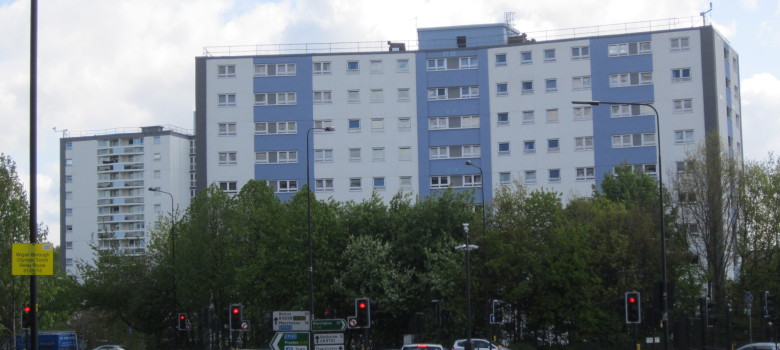
So many articles you read online are based around insulating a house. As you may have read in one of our articles a few weeks back – the average home in the UK is a 3 bed semi. This means that companies will tend to aim their products and marketing material at houses rather than flats and apartments. However, modern housing developments are seeing lots more flats being built due to the shortage of space and the cost of land. Many older properties are being split up into smaller flats for maximising rent and resale value.
Insulation for Flats
Most flats are surrounded by other properties which help to keep them warm. Further, flats tend to have been built after the 2nd World War, which means they have cavity walls making them much warmer than an older property.

How to Heat your Flat
Flats present some challenges in terms of heating. Space is always an issue, so a compact heating system is crucial. Electrical heating can be convenient, but it is often expensive compared to gas. Of course, many flats do not have a gas supply, especially high rises, so you have limited choice. This means there is usually a trade off somewhere along the line. The most popular heating methods are usually one of the following:
- Combi Boiler – For a flat that has a gas supply, a combi boiler is a good choice. Gas heating is cheap and a combi doesn’t suffer from all the extra space that is taken up by a system boiler.
- Community Heating – In larger blocks, a community boiler is often installed. These are usually fairly cheap to run and only need radiators in the property, but the controls then become really important, and you may end up paying a service charge even if you don’t use the heating much.
- Electric Storage Heaters – These take advantage of cheaper night tariffs, but you will need a separate water heater because storage heaters are a dry system, so you aren’t really saving much space.
- Infrared – A relatively new form of heating, the advantage here is that the heaters are much slimmer and sleeker than storage heaters and still efficient when compared to electric heaters. Hot water again requires a cylinder of separate instantaneous heater.
Hot water will either require an instant hot water heater, like an electric water heater or a combi boiler, or you will need a hot water cylinder with an immersion heater that heats water in situ. This is going to depend on your main heating to some extent.
Renewables for Flats
Everyone wants to get involved in renewable technology it seems, and it you have some garden and a roof of your own, it is really easy. When you just have a flat with another flat below and perhaps one above, or a shared roof, it is really much more restricted.
There are some things that you can do at a flat however. Solar might be out of the question, but a heat pump could work really well If you can mount it on an external wall. Flats tend to be better insulated because of the properties around them, and heat pumps work well in well insulated properties.












Does your company install Sedbuk CHP Boilers?
The Sedbuk is a database of boilers – detailing their seasonal efficiency (this is what people refer to when they say their boiler is 90% efficient etc). Are you looking for a CHP boiler for your individual flat or to heat and provide electricity for a number of flats?